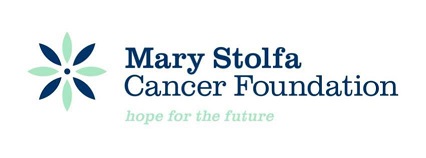| |
|
|
| |
Trial Results Show High Remission Rate in Leukemia Following Immune Cell Therapy
Children and young adults with chemotherapy-resistant B-cell acute lymphoblastic leukemia (ALL) experienced high remission rates following treatment with an experimental immunotherapy. This finding, from an early-phase clinical trial, is important because children and young adults with chemotherapy-resistant leukemia who do not achieve remission have very poor outcomes. In 2014, it is estimated that there will be over 6,000 cases of this type of cancer diagnosed in the United States, with more than half occurring in children and young adults (from age 1 to age 30). Results from this ongoing clinical trial, headed by Crystal L. Mackall, M.D., chief of the Pediatric Oncology Branch in NCIís Center for Cancer Research, demonstrated that the immunotherapy treatment had anti-leukemia effects in patients and that the treatment was feasible and safe. The results of the findings appeared October 13, 2014, in Lancet.
Genetic engineering can be used to reprogram a patientís own T cells to recognize and kill any cell that carries a specific target protein on its surface. The CD19 protein, which is found on the surface of nearly all B cells (both normal and cancerous), has been shown to be an effective target using this approach. This trial demonstrates that using T cells engineered to target CD19 in treatment-resistant cases of pediatric and young adult B-cell ALL is associated with strong anti-leukemia effects. The specific approach involves collecting T cells from patients and modifying them in the laboratory so that they would recognize and attack cells with CD19 on their surface. The modified T cells are known as CD19-chimeric antigen receptor T cells, or CD19-CAR T cells. Because these young patients are often in terminal stages and this disease often progresses rapidly, the investigators developed a method to harvest and grow the T cells in just 11 days. Their goal was to assess the feasibility of this treatment, determine its toxicity, and define the highest dose of modified T cells that patients could tolerate. Between July 2012 and June 2014, 21 patients (from age 1 to age 30) enrolled in the trial were infused with CD19-CAR T cells after they had received standard chemotherapy drugs (fludarabine and cyclophosphamide). Of the 21 patients, 19 received their protocol-prescribed dose of CD19-CAR T cells. A complete remission was observed in 14 of the 21 patients enrolled, and in 12 patients even highly sensitive techniques could not detect evidence for leukemia upon completion of the therapy. The most common side effect associated with this treatment was fever.
Posted by the National Cancer Institute
October 12, 2014
| About Mary Stolfa | Our Mission | Newsletter | Volunteer | Beauty Parlor | News Articles | Clinical Trials | Other Resources for Cancer Information | Nutrition | Acknowledgement, Awards & Public Acclaim | Foundation Projects | MSCF Products |
| Return Home | Fundraisers | Donations | Wall of Honor | Stories of Hope | Information on Specific Cancers (A-M) | Cancer Issues | Contact Us | Site Index |
|
|
| |
|
|


